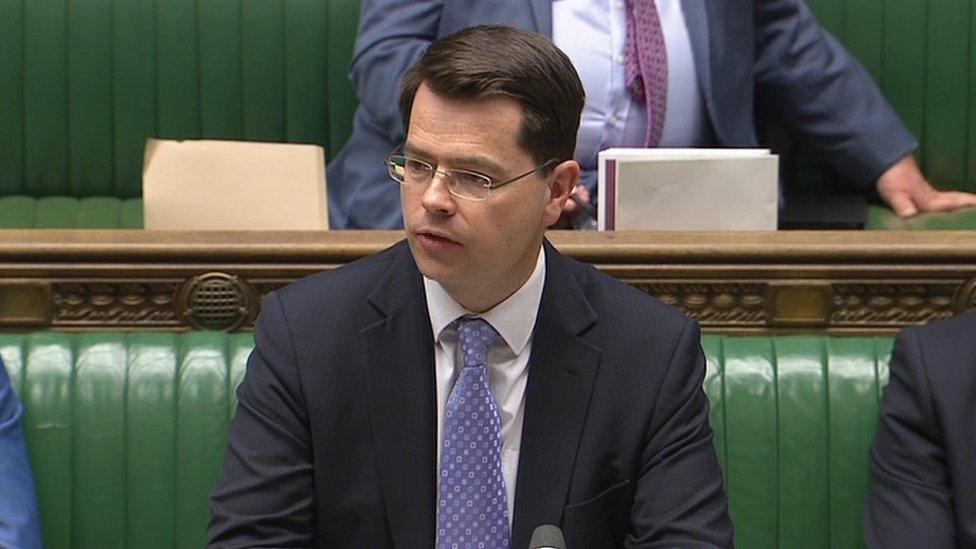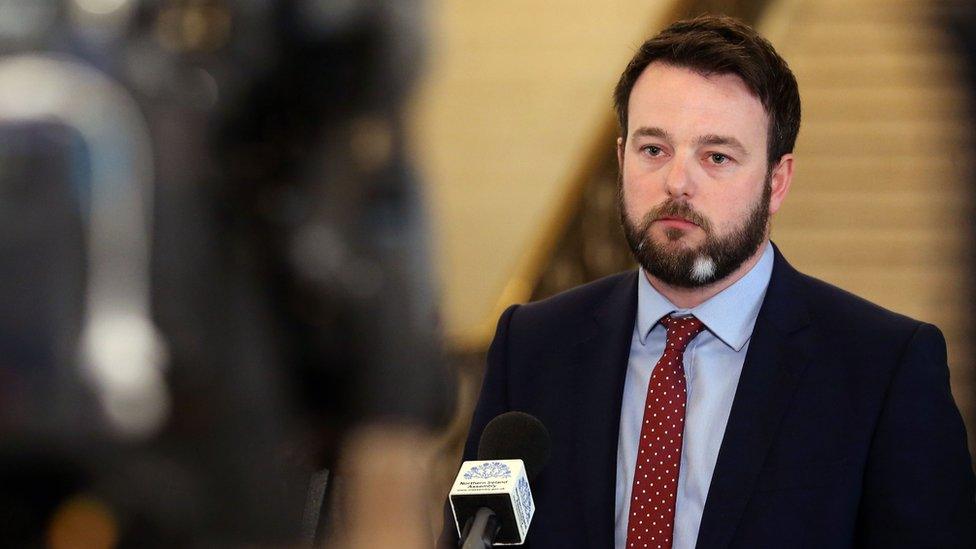NI budget may impose 2.5% education cut
- Published

Northern Ireland's education system would face a further cut of 2.5% if an emergency budget is introduced
Northern Ireland's secretary of state has published indicative figures for a budget he will impose if the Stormont parties do not reach a deal.
The indicative figures include a 3% increase in cash for health spending but a 2.5% cut for education.
Secretary of State James Brokenshire said he took advice from senior civil servants and is attempting to reflect the priorities of the local parties.
His intention is to "give clarity" in the absence of an executive.
Stormont's finances have been under the control of a senior civil servant since the start of the financial year because the previous executive did not produce a budget.
Mr Brokenshire said the totals he has set out "would not constrain the future ability of an incoming executive to adjust its priorities during the course of the year".

James Brokenshire said his intention was to give clarity to Stormont departments in the absence of an executive
Aside from health, the only other Stormont department to see a significant increase in day-to-day spending is the Department of Communities.
Its spending is up by 9%, which is understood to reflect welfare reform mitigation measures agreed by the previous executive.
The capital part of the budget would make available funding for projects which were announced by the executive as part of their 2016-17 Budget.
These include the A5 and A6 road projects, the Belfast Transport Hub, and the Mother and Children's Hospital.
On Tuesday evening, Stormont's Department of Finance published updated figures which excludes the impact of money being used for civil service redundancy payments.
On those figures the impact of the cuts are slightly reduced.
They show the education budget falling by 1% in cash terms or around £20m.
However, the general shape of the budget is the same with more money for health, but a squeeze on the other major departments.
Northern Ireland has been without a devolved government since January, when the coalition collapsed over a botched energy scheme.
The late Martin McGuinness, of Sinn Féin, quit as deputy first minister in protest at the Democratic Unionist Party's handling of the Renewable Heat Incentive (RHI) scandal.
It led to a snap election to the Northern Ireland Assembly on 2 March, which saw a surge in Sinn Féin's vote.
Stormont's two largest parties have been unable to reach agreement to share power since that date, and were warned they face either a second assembly election or direct rule from Westminster.
However, Prime Minister Theresa May's decision to call a snap election to the House of Commons made a deal even more unlikely as parties switched to campaign mode.
In order to keep day-to-day services running in the absence of locally elected ministers, the Westminster government published emergency legislation last week - known as the Ministerial Appointments and Regional Rates Bill, external
The bill began its accelerated passage through Westminster on Monday.
- Published24 April 2017
